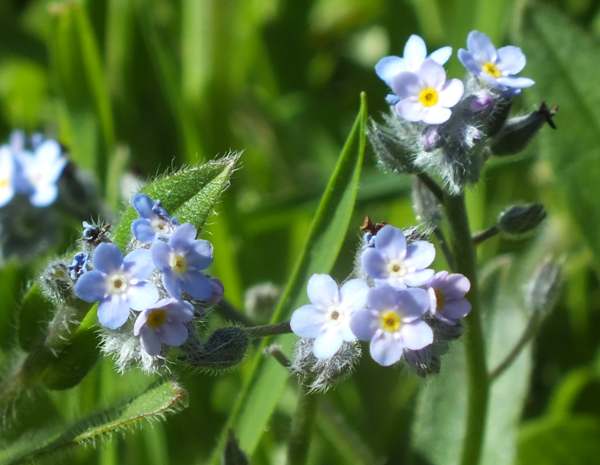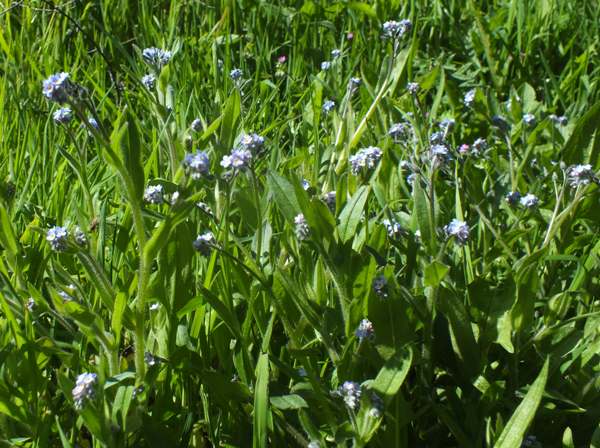Myosotis arvensis - Field Forget-me-not
Phylum: Magnoliophyta - Class: Equisetopsida - Order: insertae sedis - Family: Boraginaceae

Description
Flowers of Field Forget-me-not are 3-5mm across and have greyish-blue (occasionally pinkish) petals. The curved flowering stalks unfurl to display a succession five-lobed flowers. Leaves and stems are softly hairy. A basal rosette of stalked elongated ellipsoidal leaves usually shrivels by the time that the flowers are opening, while the upper narrow leaves are stalkless and alternate along the stem. Plants branch from the base and can grow to a height of 40cm.
Distribution
This annual or biennial plant is thought to have been introduced to Britain in ancient times and is now widespread and common throughout most of Britain and Ireland. Field Forget-me-not is also found in many parts of mainland Europe, and its eastern range extends across much of Asia.

Blooming times
Field Forget-me-not produces flowers from April to October in Britain and Ireland, but the flowers are at their very best in springtime.
Habitat
A wildflower of arable land and other disturbed dryish habitats, Field Forget-me-not is commonly seen also on roadside verges, woodland edges, hedgerows and crumbling walls. The plants shown on this page were growing in dry trackside grassland in Pembrokeshire, West Wales.
Etymology
Myosotis, the genus name, means 'mouse-ear' and refers to the shape and hairiness of the leaves. The specific epithet arvensis means 'of the fields'.
Similar species
Early Forget-me-not Myosotis ramosissima favours dry grassy habitats; its flowers are smaller with petals that are fused.
Other Myosotis species
In Europe, Asia, Australia and North America there are several dozen accepted species in the Myosotis genus, many of which occur in Britain and Ireland.
Sue Parker's latest ebook is a revised and enlarged edition of Wild Orchids in The Burren. Full details here...
Buy it for just £5.95 on Amazon...
Please Help Us: If you have found this information interesting and useful, please consider helping to keep First Nature online by making a small donation towards the web hosting and internet costs.
Any donations over and above the essential running costs will help support the conservation work of Plantlife, the Rivers Trust and charitable botanic gardens - as do author royalties and publisher proceeds from books by Pat and Sue.

